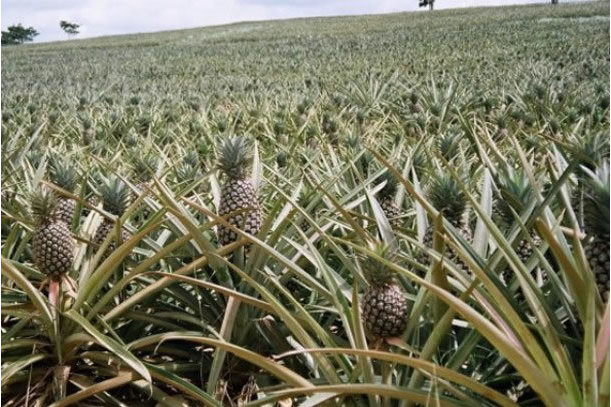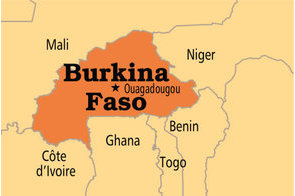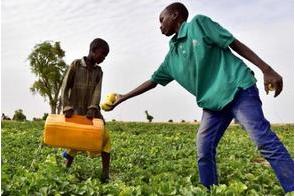‘Adapting Central Africa's agriculture to climate change costly’

Summary
Regarding the adaptation of agriculture to climate changes in the sub-region, experts specifically recommended to countries of the sub-regional to design and update National Adaptation Plans (NAPA)…
The adaptation of agriculture to climate change in Central Africa is a costly undertaking, which requires the mobilisation of important human and financial resources and technology transfer. This is one of the main conclusions arrived at by a panel of some twenty experts from the countries of the sub-region, the CEMAC commission and other international bodies invited by the United Nations Economic Commission for Africa (ECA) to a capacity building workshop on mainstreaming climate change related concerns into agricultural policies, organized from 2 to 4 December 2015 in Douala, the economic capital of Cameroon.
For three days, experts discussed ways of building the capacity of Central African countries to design and implement appropriate climate change adaptation policies and national and sub-regional strategies for mitigating greenhouse gas emissions in the agricultural sector.
Regarding the adaptation of agriculture to climate changes in the sub-region, experts specifically recommended to countries of the sub-regional to design and update National Adaptation Plans (NAPA), speed up the creation of the Central African Climate Centre (which will be helpful for seasonal forecasts and as a warning mechanism), and acquire irrigation technologies.
Concerning mitigation measures, experts recommended the creation of national systems to estimate all potential greenhouse gas emission reductions; complete national strategies to combat deforestation (REDD+) and those of the Clean Development Mechanism (CDM); mobilize funds geared towards mitigation and the green economy; and build the capacity of farmers in respect of greenhouse gas (GHG) emission risks.
According to Mr. Emile Akongo - an agricultural engineer, who opened the workshop on behalf of Cameroon's Minister for Agriculture and Rural Development, "it is in the interest of Central African States to strengthen individual and institutional capacity in order to help our teams working in the agriculture sector to better apprehend climate change related risks and apply the most appropriate adaptation measures".
To Mr. Emile Ahohe, Director of the ECA Sub-Regional Office for Central Africa, the merit of the workshop is that "agriculture in Central Africa is one of the most important economic sectors that involves the majority of the population and accounts for about 30 per cent of the gross national product of the countries in the sub-region.
"It relies heavily on rainfall and as such, is vulnerable to climate changes, seasonal disruptions and rain distribution," he added.
Related
-
Solidaridad strengthens partnership with Nigeria on Sustainable Development Goals
In collaboration with cocoa companies in Nigeria, Solidaridad has trained over 27,000 farmers in cocoa production.
-
Programme on child and maternal malnutrition in Burkina Faso shows positive results
The programme helped to increase the ownership of productive assets by women and improve their social status.
-
MasterCard, MSU launch $13mn fund to boost youth employment in Nigeria, Tanzania
The initiative will encourage youths to participate in horticulture, aquaculture, poultry, cassava, oilseed sectors.







